Embedded Will Be he Future Of Health And Fitness Experiences
February 21, 2020The Future of Democracy
February 27, 2020A story by Michelle Hermans
Chances are if you know what the difference between AHA’s and BHA’s, you are one.
skintellectual
skin-tl-ek-choo-uhl
(used as noun or adjective)
1. a person who is educated on the ingredients, benefits and science of skincare products and is knowledgeable about their skin and its particular needs
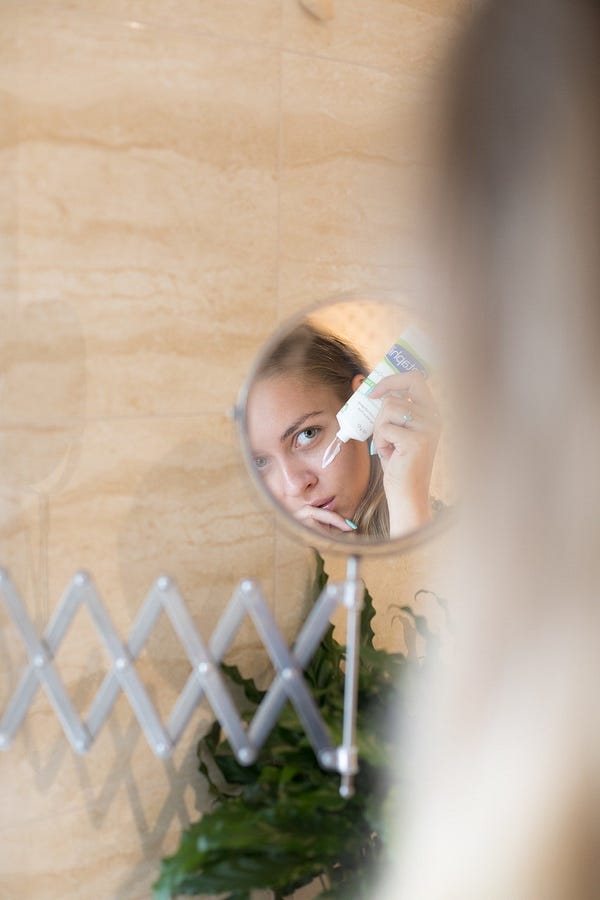
Millennial skincare consumers are shaping the future of the beauty industry by getting smart on the science behind ingredients in their cosmetic products. Some people still might question if the text on the back of their facial cream is written in a foreign language, but if you know what AHA, vitamin C, hyaluronic and glycolic acid can do for you skin, you probably are a so called skintellectual. I dare say I myself am a skintellectual, having suffered from acne prone skin in my teens and early twenties. I endlessly searched the world wide web for things that might work for my problematic skin. Now, at 26, I am more educated than ever on what products to use and which ingredients are best for my cherished — and finally cleared up — skin. I am curious to what has changed in the industry of beauty and what the future of it all has in store.
Not even ten years ago, many high-end brands made promises to erase lines and smoothen out wrinkles with so called ‘magic elixirs’ and words like ‘perfecting’ and ‘refining’. Blindly buying what someone behind a counter is telling you is a thing of the past, though. Fast-forward to now, people aren’t as easily seduced by fancy packaging or catchy commercials anymore. Move over, questionable statements like ‘’dermatologist-approved’’, and hello detailed ingredients list. Millennials want insight into the scientific reasons behind the ingredients in their products, rather than to be told that ‘they work’. Long gone are the days that started with bit of facial cream in the morning and ended with a cleanser in the evening. One now has the option to apply a multi-step beauty routine, complete with essence, serums, boosters and concentrates — and I am not saying you should, by the way. These developments lead to a steep increase in innovative application methods, high-tech packaging and skincare bloggers that have a legitimate career in making the science of beauty understandable for the bigger crowd. The beauty savvy customer knows that a fleeting formula in a jar is exposed to oxidation damage and would do better in packaging with an airtight pump. Skintellectuals like me demand to know what we put on our precious skins, and the personalisation of beauty makes it possible to customise our routines to cure even the most confused of complexions. And, taking care of your skin is, after all, a sign of #selflove and #selfcare — things that are bigger than ever in 2020.
Being savant on the subject actually isn’t all that complicated. Not only diehard skincare fanatics are driving the industry to new heights, but customers overall are more knowledgeable than ever. Being skintellectual isn’t about trying all the skincare products out there and knowing everything there is to know about the subject. Skintellectualism is knowing what works for you and addressing your skin concerns with the right products and ingredients. The good news is that websites and blogs have already done a lot of the work for you. There are tons of review forums and comment sections on beauty e-commerce websites, which makes it possible for consumers to analyse their favourite products and to check out what unbiased peers think.
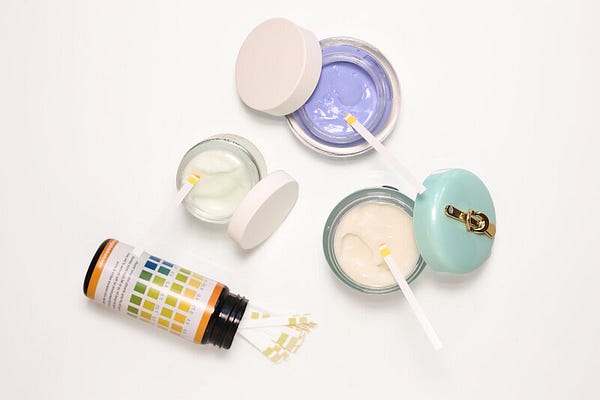
Beauty by the Geeks, a group of scientists that are dedicated to breaking down the science behind the beauty, offer detailed reviews for tons of cosmetic products. The aptly named website skintellectual.com shares insights in blogposts like ‘How to layer skincare products by pH level’ and ‘Why you need azelaic acid in your life’. And then there is Vogue’s Skincare Alphabet that gives a 101 on key ingredients and what they can do for your skin. If you are looking for a more community minded approach, there is Reddit’s SkincareAddiction forum. With more than a million members the community cares to all skincare enthusiast, not only the problem-skinned. The forum offers a both personal and educational online platform for interaction and tips, but it is also your go to place if you feel like screaming into a digital void about why the hell your skin is acting up lately and if it maybe has something to do with the combination of your daily vitamin C serum and your new sunscreen.
As Daniel Isaacs, formulation and development director at Medik8, puts it: ‘’The skin is the body’s largest organ, and it needs to be looked after just as you would the rest of your internal organs,” so you better know what’s good for yours. The skincare company, that has science at its core, is best known for ‘time-released, low-irritation retinols — an ingredient known for its anti-aging properties. Clinical studies, patented, professional products and before and after photo’s help to make the brand a trustworthy skincare authority (Murray, 2018).
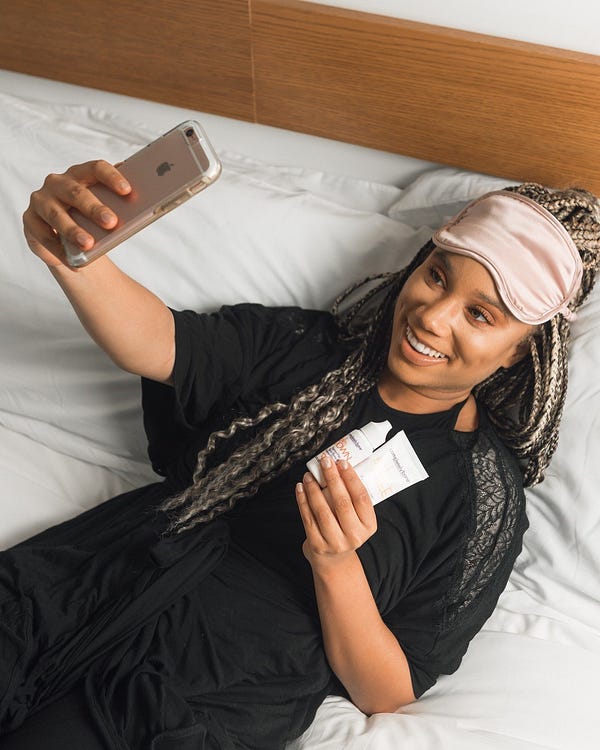
Another influential aspect of skintellectualism is social media. The beauty industry is the biggest taker when it comes to influencer marketing, as research shows (Rakuten Marketing, 2019). These beauty influencers are changing the depth of their reviews on new products from ‘this is really nice, and it will be out next week’ to listing certain ingredients and highlighting what they do for different skin types. There also is more attention for appropriateness for allergies and if things are vegan. “It’s because of the readers’ demands — they give me my best questions,” said beauty influencer Caroline Hirones to Rifinery29.
However, people closest to the consumer also have a big impact on beauty choices and routines as well, especially friends (50%), mothers (49%) and sisters or other family members (41%). These close and personal contacts are even more influential than magazines (27%), online videos (27% and social media like Instagram (25%) (Danzinger, 2019). This is why it is important for cosmetics companies to amp their customer relations and service, and why beauty brands should foster customers that are loyal and enthusiastic. Word of mouth is doubtless one of the most powerful and best forms of marketing there is — and it’s cheap when done right. Transparency is a key ingredient in this mix, because people, especially skintellectuals, want to know exactly what they are paying for and from who they are buying.
Alexia Inge, founder of Cult Beauty, thinks radical transparency in the beauty world might be led by the food industry. People are checking labels and are concerned, more than ever, what they are putting in and onto their bodies. ‘’I also think that people’s skin has become more sensitive as the world has got more toxic and pollution has increased. We’ve had to educate ourselves more in order to treat it.” Because of this, we no longer accept pseudo-science and we want cosmetics companies to be honest and authentic. Brands and retailers that offer transparency on their produce are winning the hearts of modern beauty consumers. Consumers are willing to pay, but only for products that are specific and proven to cater to their skin needs. The WWD report that was published by The NPD Group shows that niche and speciality beauty, and therefore smaller companies, are among the fastest growing categories. “I think it’s that customers feel they can trust a small brand more,” says Inge (Niven-Phillips, 2019).
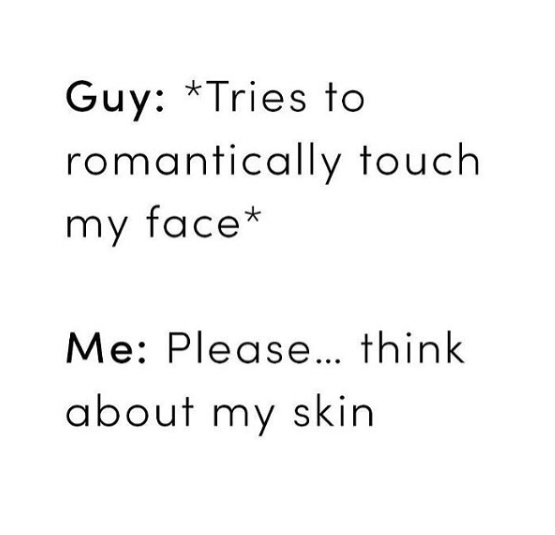
Not only customers benefit from this advancement. Serving uneducated consumers is very expensive, because they require an exceptional amount of marketing spend, which will in the end have to be put back into the product pricing. ‘’We target the more educated audience who then will indirectly communicate their love of what we do with others, in effect encouraging more education at large,” said Brandon Truaxe, founder of skincare brand Deciem, in an interview with Vogue. The brand has products that have sciencey names, like Superoxide Dismutase Saccharide Mist. ‘’It’s so important for someone who buys this product to appreciate how important SD is, how difficult it was to solubilise and keep stable, and how much it can do topically. If we called this product ‘Prevent and Hydrate Mist’ we would do so much injustice not only to the product but to the audience who uses it” (Niven-Phillips, 2019).
It’s safe to say that skincare is serious business. The US billion-dollar makeup category was still the largest chunk in the $18.8 billion for beauty sales last year, but skincare continues to flourish and grow. While makeup sales declined with 7% in 2019, skincare grew with 5%.
“’Natural’ is a big buzz word in many industries, especially beauty — in terms of product ingredients as well as consumers looking to achieve a more natural look,”
said Larissa Jensen, vice president and beauty industry advisor of The NPD Group. Natural is a key word and the top growth contributor, with natural brands representing 30% of total skincare. Targeted treatments are also gaining ground, with brighteners, exfoliators and acne remedies (NPD, 2019). Switched-on customers, both men and women, are tuned-in about highly efficacious skincare. Whether its regarding SPF protection or what types of acid are suitable for acne prone skin, people expect the best when they are investing in treatments or products. They will not compromise on quality for money and there is no going back. You can therefore expect skintellectualism to make our skincare regimens smarter and more effective than ever before.
Want to know more about the skin-subject, or even become a skintellectual yourself? Click on the links that are highlighted in this post. (SkincareAddiction, Skintellectual, Vogue Alpabet, Beauty by the Geeks)
This is a story of the Futurist Club
by Science of the Time
Written by: Michelle Hermans
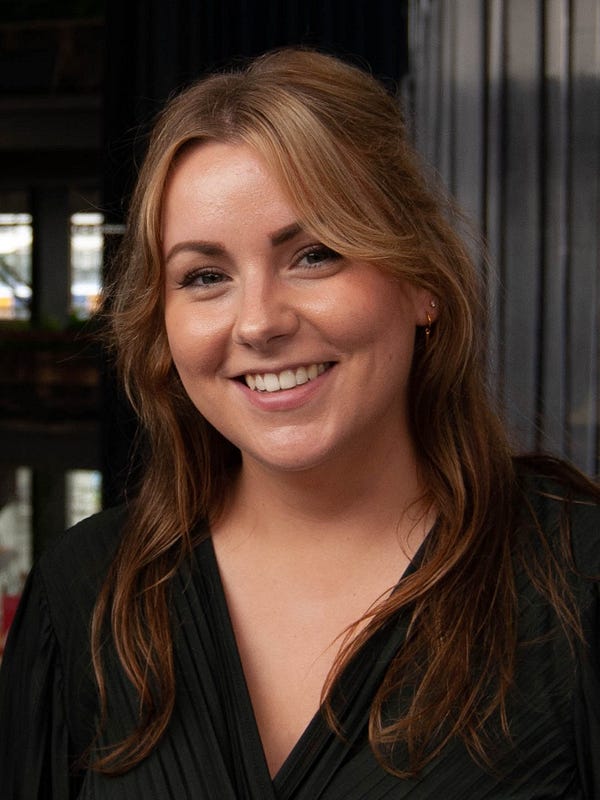
Michelle Hermans (26) is a Dutch trend researcher and concept creator with a background in interior and graphic design. She is currently writing her graduation thesis on how to help Millennials enrich their lives with culture and to be citizens of the world. Michelle has a passion for innovation, writing and exploring possible futures by making educated guesses. She is interested in the fields of technology, AI and social design for our future cities, and thinks sustainability should be the new normal. As co-founder of Making Sense, a platform for daily trend-updates, she strives to help companies to stay relevant by translating research in changing consumer values, behaviour and needs to future-proof strategies.
Her previous projects include designing future jobs as part of the Next Nature Network HUBOT challenge (winning team), cool hunting for Science of the Time, and hosting trend tours at Dutch Design Week, Ambiente and London Design Festival.



